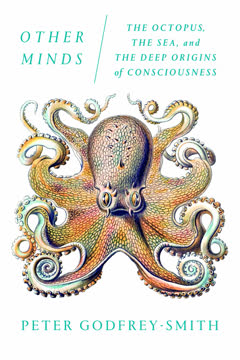重点摘要
1. 人类本能塑造我们的行为,根植于我们的进化历史
“我们都是为了寻找配偶和繁衍后代而设计的。就我们的基因而言,繁殖是唯一的目的。”
我们的祖先遗产。 人类行为深受在非洲大草原上数百万年进化而来的本能影响。这些本能通过自然选择形成,继续影响我们在现代生活中的决策、社交互动和情感反应。
本能与现代世界。 虽然我们的本能在史前时代对生存是适应性的,但有时它们会与当代社会的需求发生冲突。例如:
- 对非威胁性刺激的恐惧反应
- 在食物充裕的时代对高热量食物的渴望
- 在和平社交环境中的攻击倾向
理解这些本能驱动可以帮助我们应对现代生活的复杂性,并对我们的行为做出更明智的选择。
2. 生存本能:战斗或逃跑反应及其现代意义
“在你的身体内部,一切都乱成一团。生物学的警报和警笛在尖叫。”
生理反应。 战斗或逃跑反应是一种强大的生存机制,使身体在面对感知到的威胁时准备立即行动。这种本能反应包括:
- 快速释放压力荷尔蒙(肾上腺素、皮质醇)
- 心率和血压增加
- 血流重新分配到肌肉
- 感官感知增强
现代背景。 虽然这种反应对我们的祖先面对掠食者时至关重要,但在现代生活中,它可能会被非生命威胁的压力源触发,例如:
- 公开演讲
- 工作截止日期
- 交通堵塞
- 社交冲突
识别这种反应的生理信号可以帮助我们更有效地管理压力,避免对日常生活中的小威胁过度反应。
3. 大脑的成长:人类智力和认知能力的进化
“我们开始互相交谈,这使得集体生活变得更加复杂和成功。”
大脑扩展。 人类大脑在数百万年间经历了显著的增长和发展,从早期祖先到现代人类,大脑体积增加了三倍。这种扩展是由以下因素驱动的:
- 环境压力
- 社会复杂性
- 工具使用和技术创新
- 语言发展
认知优势。 扩大的大脑赋予人类独特的认知能力,使我们与其他物种区分开来:
- 抽象思维和问题解决
- 复杂的语言和交流
- 长期规划和预见
- 知识的文化传递
这些认知进步使人类能够适应多样化的环境,形成复杂的社会,并最终主宰地球。
4. 性选择和配偶偏好:吸引力的基因驱动因素
“男人被编程为追求性多样性,以传播他们的基因;如果有机会使另一位女性怀孕——尤其是已经结婚且不需要照顾和供养的女性——那么他可能会发现这是最划算的进化交易。”
进化策略。 性选择塑造了男女不同的配偶偏好,反映了不同的繁殖策略:
男性的偏好:
- 青春和生育力的信号(例如腰臀比)
- 外貌吸引力
- 健康和基因质量的标志
女性的偏好:
- 资源和地位
- 承诺和可靠性
- 智慧和社交技能
现代意义。 这些进化偏好继续影响当代社会中的吸引力和关系动态,尽管文化因素和个体差异也起着重要作用。
5. 家庭动态:亲属选择和家庭纽带的进化基础
“因为我们的孩子、兄弟姐妹和堂表亲携带我们的一部分基因,帮助他们生存、繁荣和繁殖符合我们的利益。”
基因投资。 亲属选择理论解释了为什么我们更有可能帮助和合作与我们有密切基因关系的亲属。基因关系越近,我们越有可能从事利他行为:
- 父母和孩子(50%共享基因)
- 兄弟姐妹(50%共享基因)
- 祖父母和孙子女(25%共享基因)
- 堂表亲(12.5%共享基因)
家庭结构。 这种基因倾向塑造了人类历史上的家庭结构和社会组织,影响了:
- 父母对后代的投资
- 兄弟姐妹关系和竞争
- 扩展家庭网络和支持系统
- 继承模式和资源分配
理解亲属选择可以提供对家庭动态、社会行为,甚至是围绕亲属关系和继承的文化实践的见解。
6. 冒险行为:进化优势和现代后果
“人类喜欢过度,找到越来越多巧妙的方法让自己处于危险之中,并采用他们能负担得起的所有昂贵障碍。”
适应性冒险。 冒险行为可能作为一种适应性策略进化,提供潜在的好处,例如:
- 获取资源和配偶
- 地位和社会声望
- 探索新领土
- 创新和问题解决
障碍原则。 冒险行为可能作为基因质量的诚实信号,展示个体在自我设限的障碍下生存的能力。
现代背景。 在当代社会中,冒险倾向可以以各种方式表现出来:
- 极限运动和寻求刺激的活动
- 金融投机和赌博
- 物质滥用和成瘾
- 鲁莽驾驶和其他危险行为
虽然一些冒险行为可以导致创新和进步,但过度冒险可能对个人和社会造成严重后果。理解这种行为的进化根源可以帮助制定策略,更有效地引导冒险冲动。
7. 暴力和攻击性:本能根源及社会影响
“我们几乎可以肯定,一只雄狮携带的基因不会通过让另一只狮子的基因繁荣而进化。”
进化背景。 攻击行为可能作为一种策略进化,用于:
- 资源竞争
- 配偶获取和保留
- 领土防御
- 建立社会等级
基因和荷尔蒙因素。 暴力倾向可以受到以下因素的影响:
- 基因倾向
- 荷尔蒙水平(例如睾酮)
- 神经差异(例如前额叶皮层功能)
社会影响。 虽然暴力在我们的进化历史中具有适应性目的,但在现代社会中它带来了重大挑战:
- 犯罪行为和执法
- 家庭暴力和虐待儿童
- 国际冲突和战争
- 社会不平等和压迫
理解攻击性的本能根源可以为暴力预防、冲突解决和促进更和平的社会互动提供策略。
8. 合作和利他主义:亲社会行为的进化
“我们天生就要与他人合作生活,并且我们天生就有能力意识到他人未能履行其分配角色。”
进化优势。 合作和利他主义可能由于其对群体生存和个体适应性的好处而进化:
- 资源共享和风险分担
- 集体防御掠食者和竞争者
- 知识传递和文化学习
- 通过合作增强问题解决能力
合作机制。 多种因素有助于合作行为的进化和维持:
- 亲属选择(帮助亲属)
- 互惠利他主义(长期互利)
- 群体选择(对整个群体的好处)
- 声誉和间接互惠
现代意义。 合作倾向支撑了人类社会的许多方面:
- 经济系统和劳动分工
- 社会机构和治理
- 文化实践和传统
- 科学和技术进步
理解合作的进化基础可以为促进亲社会行为和解决现代社会中的集体行动问题提供策略。
9. 道德和精神:超越本能的人类高级特质
“我们被束缚在我们的经验存在中,我们的道德感因此牢固地植根于人类世界。”
进化基础。 虽然道德和精神似乎是人类独有的,但它们可能具有进化根源:
- 同理心和心智理论
- 公平感和互惠
- 群体内合作和群体间竞争
- 模式识别和因果推理
文化扩展。 人类文化在这些本能基础上建立了多样的道德和精神系统:
- 伦理框架和哲学
- 宗教信仰和实践
- 法律系统和社会规范
- 仪式和象征行为
现代意义。 理解道德和精神的进化和文化基础可以:
- 促进跨文化理解和宽容
- 在复杂情况下提供伦理决策指导
- 提供对人类意识和意义建构的见解
- 指导努力培养亲社会行为和社会凝聚力
虽然我们的道德和精神能力可能有本能根源,但它们代表了一种独特的人类能力,能够超越即时的生物需求,思考抽象的对错概念和存在的本质。
《人类本能:我们的原始冲动如何塑造现代生活》由罗伯特·温斯顿著作,依据创作共用署名-非商业性使用-相同方式共享4.0国际许可协议授权。
基于https://www.amazon.com/Human-Instinct-Primeval-Impulses-Modern/dp/0553814923上的作品。
要查看此许可的副本,请访问http://creativecommons.org/licenses/by-nc-sa/4.0/。
最后更新日期:
FAQ
What's Human Instinct about?
- Exploration of Human Behavior: Human Instinct by Robert Winston examines how primal instincts, shaped by evolution, influence modern human behavior, focusing on survival, reproduction, aggression, and cooperation.
- Connection to Evolution: The book discusses the psychological implications of human evolution, emphasizing that our minds are still rooted in our Stone Age past, connecting instincts to ancestral challenges.
- Interplay of Science and Religion: Winston explores the relationship between science and religion, questioning how instincts shape beliefs and moral frameworks in contemporary society.
Why should I read Human Instinct?
- Understanding Instincts: The book provides insights into the instincts driving human behavior, offering a scientific perspective on why we think and act the way we do.
- Relevance to Modern Life: It explores how ancient instincts clash with modern societal norms, helping readers understand responses to stress, competition, and relationships.
- Engaging Narrative: Winston's accessible writing style makes complex scientific concepts understandable, using anecdotes and examples to illustrate key points effectively.
What are the key takeaways of Human Instinct?
- Instincts Shape Behavior: Many behaviors, from aggression to altruism, are driven by deep-seated instincts inherited from ancestors, leading to greater self-awareness.
- Survival and Reproduction: The importance of survival and reproductive instincts in shaping human relationships and social structures is highlighted, influencing mate selection and parenting styles.
- Cultural Influences: While instincts play a significant role, culture and environment also impact human behavior, shaping how instincts are expressed in different societies.
What are the best quotes from Human Instinct and what do they mean?
- "We are all trapped inside what is essentially a Stone Age mind.": This quote suggests that modern behaviors are influenced by ancient instincts that may not serve us well today.
- "Instinct is essentially that part of our behavior which is not learned.": It highlights the distinction between instinctual and learned behavior, emphasizing innate drives shaping actions.
- "The pressures to which we have been exposed over millennia have left a mental and emotional legacy.": This reflects on how evolutionary pressures have shaped our psychological makeup, influencing emotions and reactions.
How does Human Instinct explain the origins of survival?
- Fight or Flight Response: Winston discusses the biological mechanisms behind the fight or flight response, crucial for survival in threatening situations, rooted in our evolutionary past.
- Adaptation to Environment: Early humans adapted to savannah dangers, developing instincts that helped them survive against predators, reflected in current behaviors and stress reactions.
- Role of Instincts: Instincts related to survival, such as fear and aggression, are hardwired into our brains, influencing responses to perceived threats even today.
What insights does Human Instinct provide about sexual behavior?
- Sexual Drive and Reproduction: Sexual instincts are fundamental to human behavior, driving individuals to seek mates and reproduce, with evolutionary advantages discussed.
- Differences Between Genders: Differences in sexual behavior and preferences between men and women are highlighted, rooted in evolutionary pressures, with men seeking multiple partners and women being more selective.
- Impact of Culture: While instincts play a significant role, cultural norms and societal expectations also influence how these instincts are expressed.
How does Human Instinct address the concept of morality?
- Morality Beyond Instinct: Winston questions whether morality is purely instinctual or shaped by cultural and social factors, exploring the relationship between instincts and moral beliefs.
- Evolution of Morality: Moral behaviors may have evolved as adaptive strategies for social living, promoting cooperation and altruism within groups, linked to survival as a species.
- Complexity of Human Nature: Human morality is complex and cannot be fully explained by instincts alone, with biology, culture, and individual choice shaping moral frameworks.
What role does cooperation and altruism play in Human Instinct?
- Survival of the Group: Cooperation and altruism are essential for the survival of social groups, enhancing individual survival chances within the group.
- Evolutionary Advantage: Altruistic behaviors may have evolved for evolutionary advantages, such as increased support and protection from group members, linked to kin selection.
- Human Relationships: Instincts for altruism foster social bonds and community cohesion, highlighting the importance of cooperation in human relationships.
What is kin selection as discussed in Human Instinct?
- Definition of Kin Selection: Kin selection explains how behaviors helping relatives enhance the survival of shared genes, with individuals more likely to act altruistically towards genetic ties.
- Examples in Nature: Examples from the animal kingdom, like worker bees sacrificing for the hive, illustrate kin selection in various species.
- Implications for Human Behavior: Kin selection helps explain why humans prioritize family well-being over strangers, as evolutionary history favored such behaviors for gene survival.
How does Human Instinct explain the concept of altruism?
- Altruism Defined: Altruism refers to selfless behavior benefiting others, often at a personal cost, understood through evolution and natural selection.
- Types of Altruism: Different forms include kin altruism (helping relatives) and reciprocal altruism (helping others with future help expectations), evolved as survival strategies.
- Real-World Examples: Case studies, like individuals risking lives during the Holocaust, illustrate the profound capacity for altruism in humans.
What role does aggression play in human instincts according to Human Instinct?
- Aggression as an Evolutionary Trait: Aggression has been a crucial survival mechanism throughout evolution, helping individuals compete for resources, mates, and territory.
- Cultural and Social Influences: While rooted in biology, cultural norms and social structures modulate aggressive behaviors, leading to varying violence levels across societies.
- Case Studies of Aggression: Examples from human history and animal behavior illustrate aggression manifestations and circumstances under which it is expressed.
How does Human Instinct relate to modern societal issues?
- Conflict Between Instincts and Society: The tension between ancient instincts and modern life demands, like living in large cities, can lead to stress and dissatisfaction.
- Understanding Human Behavior: Insights into contemporary issues like competition, aggression, and relationship dynamics are provided by examining underlying instincts.
- Cultural Adaptation: While instincts are rooted in evolution, culture and societal norms shape how these instincts are expressed, informing social behavior and policy discussions.
评论
《人类本能》因其对进化心理学和人类行为的通俗易懂的探讨而广受好评。读者们欣赏温斯顿引人入胜的写作风格和对人性洞察的见解。然而,有些人批评最后一章的宗教内容,认为这与科学方法相矛盾。该书因其广泛的主题覆盖和清晰解释复杂概念的能力而受到赞扬。尽管有些人认为它过时或缺乏深入的科学严谨性,许多人仍推荐它作为进化心理学和人类行为的入门读物。












